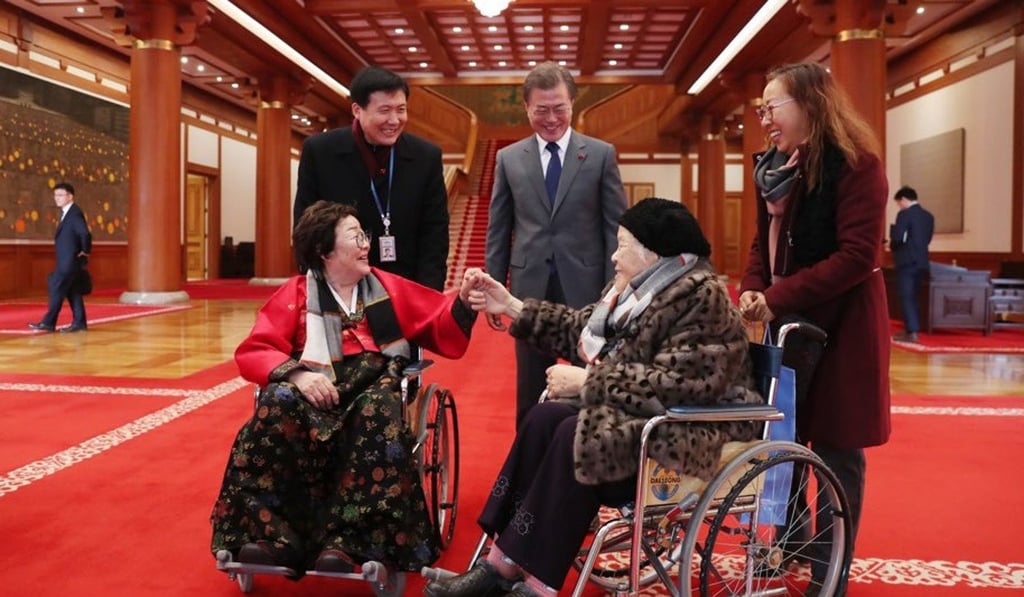Advertisement
Why Japan needs to revisit the 2015 ‘comfort women’ deal with South Korea
Jeff Kingston says the flawed bilateral agreement, as South Korean President Moon Jae-in asserts, ignores the wartime victims and risks deepening historic resentment. It is time for Japan to take the measure of what it inflicted and make genuine amends
Reading Time:3 minutes
Why you can trust SCMP

Japan should agree to reopen the bilateral 2015 agreement on “comfort women” and work with South Korea to engage in a victim-centred public process. This agreement, concluded with the impeached former South Korean president, Park Geun-hye, is exceptionally one-sided, never had any legitimacy among South Koreans and thus could never live up to its billing as “final and irreversible”.
Advertisement
The 2015 accord perpetuates the “averted eyes” approach that has persisted for too long and forced women in war to suffer in silence. Insisting that the deal is sacrosanct, while eliding the violation these women endured, dishonours Japan and its victims.
The accord very obviously falls short of addressing the horrific abuses inflicted by Japan’s military on tens of thousands of women, mainly Koreans, in the 1930s and 1940s. On December 27, South Korea released the results of a five-month review of the agreement, which concluded that the victim-centred approach, “established as an international standard when it comes to women’s human rights during war, was not sufficiently reflected during the negotiation process”. In fact, the victims and their advocates were excluded from the secret negotiations – ostensibly meant to sincerely address a profound historical injustice.

Japan says ‘no alternative’ to ‘comfort women’ deal after South Korean president dismisses it
President Moon Jae-in has repeatedly criticised the accord for being flawed in content and process. On January 4, he also met former comfort women and apologised to them for the Park government’s negligence. This compassion was entirely missing in the quid pro quo deal – payouts for silence about a sordid saga of women having to endure sexual slavery. The Japanese government did not even acknowledge its responsibility and Prime Minister Shinzo Abe failed to make a public apology, only phoning it in to Park.
Surely the 2015 agreement is a betrayal of international norms and decency
However, the chances of Japan renegotiating the 2015 agreement appear slim, because it is on firm legal ground. Japanese Chief Cabinet Secretary Yoshihide Suga insists that the deal is “final and irreversible” and Foreign Minister Taro Kono has warned of serious consequences if Seoul reneges. But condemning Seoul for not abiding by a flawed pact, which a disgraced leader agreed to, is not going to solve anything.

Advertisement